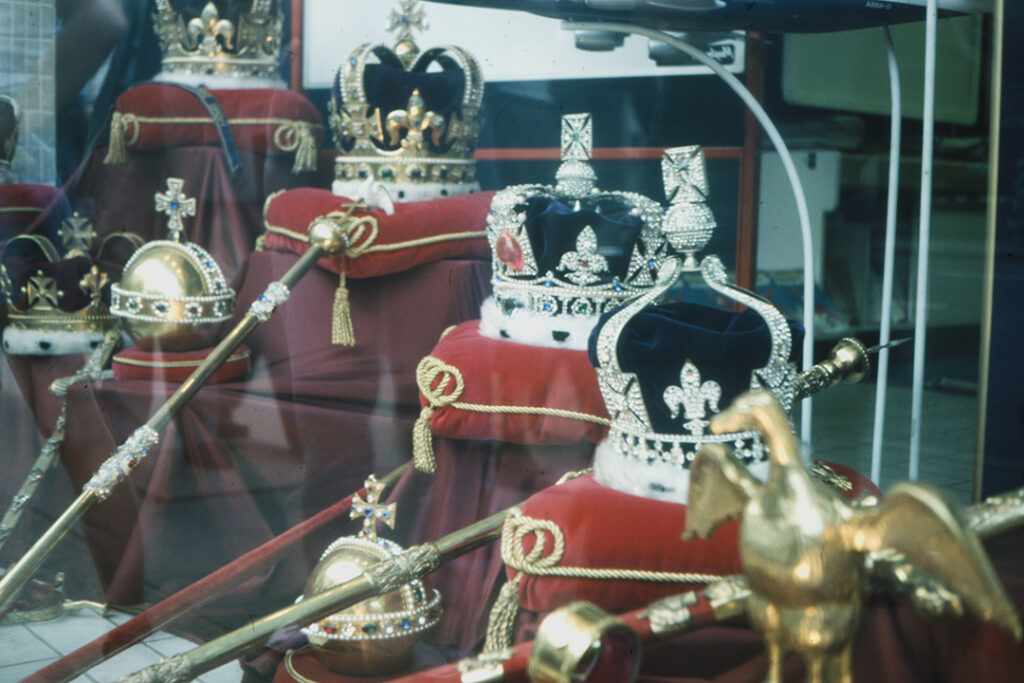King Charles III: Faithful defender?
King Charles III: Faithful defender?
Christianity is now a minority religion in Britain. Frazer MacDiarmid explores whether it’s time the new king reinterprets his title Defender of the Faith.
This weekly comment was written by Frazer MacDiarmid and reflects his personal analyses and opinions, rather than those of EARS.
In May 2023, Charles III will assume the title Fidei Defensor, traditionally translated as ‘Defender of the Faith’ (i.e. the established Church of England).[1] On the coins minted for the new reign, the monarch’s profile will be encircled by the abbreviation FID. DEF. or F D, as it has been for centuries.[2]
But the landscape of British society has changed almost beyond recognition since 1521, when this title was first granted to Henry VIII.[3]
Christianity is now a minority religion in England and Wales, for the first time in over a millennium.[4] Only 12% of Britons are members of the Church of England.[5] But it is the speed of this change that is most alarming: in 2001 nearly three-quarters of the population was Christian.[6]
In light of Britain’s changing relationship with religion, how appropriate is it for the Sovereign to be defending a faith that only a small minority of his subjects subscribe to?
Monarchy and Christianity: historically intertwined
There is powerful institutional momentum behind the titles, roles, and responsibilities the British monarch assumes, which have historically been wedded to Christianity. Since 1558 the monarch has been Supreme Head of the Church of England. In coronation oaths set out by parliament in 1689, Charles III will swear to “maintain and preserve” the establishment of the Church of England.[7]
To be eligible for coronation, Charles III must be “in communion with” the Church of England and swear that he is a faithful Protestant.[8] Until as recently as 2013, marrying a Roman Catholic would disqualify one from succeeding to the throne.[9]
A very Christian ecumenism
But there are signs of movement. In a 1994 documentary, the then Prince Charles made waves saying he would rather see himself as “Defender of Faith, not the Faith.”[10] [11] Charles has since demonstrated his genuine interest in religion in all its forms, as Martha Scott-Cracknell has explored in an article for EARS.
Charles believes the sovereign has a “duty to protect the diversity of our country, including by protecting the space for Faith itself and its practise through [all] religions, cultures, traditions and beliefs.”[12] He believes that “while … being Defender of The Faith, you can also be protector of faiths.”[13]
Charles has also made efforts to reassure conservatives that his respect for different religions in no way conflicts with his own identity as a “committed Anglican Christian.”[14] On the contrary, his own faith demands he respect people pursuing “other spiritual paths.”[15]
This stance is consistent with that of Elizabeth II, whose deeply held Christian faith allowed the public a glimpse into the personal life of an otherwise reserved queen. As she said in 2012:
“The concept of our established Church is occasionally misunderstood and, I believe, commonly under-appreciated. Its role is not to defend Anglicanism to the exclusion of other religions. Instead, the Church has a duty to protect the free practice of all faiths in this country.”[16]
The Church of England should pay attention to its position within an ecosystem of British faiths, not succumbing to instincts of self-preservation or illusions of exclusivism, she argued. For her as for her son, the Christian message of love entails respecting and valuing those of all faiths and none.[17]
Fidei Defensor
The monarch’s role title translates equally well as ‘Defender of Faith’ as it does the conventional ‘Defender of the Faith’. While there is no doubt that it was originally intended to refer to Christianity, there are strong reasons why it is overdue for reinterpretation in 2023.
- Anti-religious behaviour is increasing in Britain. 8,730 religion- or faith-based hate crimes were reported in 2021/22, a 37% increase from the previous year. These crimes have been rising for the past 5 years.[18] Between a religion-illiterate media, an increase in xenophobia in the wake of Brexit,[19] and multiple problems facing religious education,[20] [21] [22] a perfect storm of religious hatred and ignorance is brewing.
- Christians feel threatened. In 2021 the UK was ranked in the top 5 countries in Europe where Christians face oppression, according to an independent body.[23] 61% of British Christians say there is at least some discrimination against Christians in the UK.[24] These threats are variously perceived: from the forced erasure of Christian traditions in attempts to accommodate different cultures,[25] to Christians’ inability to freely preach or live out their beliefs.[26] While not all perceived threats are actual threats,[27] there is no denying that Christianity itself is threatened by an increasingly secular society, as the most recent census statistics demonstrate.[28]
- Fidei Defensor has been reinterpreted before. When Henry VIII was first conferred the title by the pope in 1521, it referred to his defence of the Roman Catholic faith against the threat of Luther and the growing Protestant movement. After he broke with Rome and founded the Church of England, he again assumed the title, which now referred to his defence of the Anglican faith.[29] So too in 2023, the context in which this title is understood has shifted. The threats faith faces, and the faiths being threatened, need to be reconsidered.
Time for change
Whichever way you look at it, religions and religious people are sorely in need of a Defender. In Britain, the Church and the monarchy together command significant power, with which comes the power and responsibility to do significant good.
As both Charles III and Elizabeth II have commented, Jesus taught his followers to protect the weak and marginalised. He also taught them that as believers they would be persecuted. This collective experience of persecution should motivate Christians to be sympathetic supporters of all those suffering for their faith, whatever their faith.
Despite calls for ties between the monarchy and the Church of England to be severed, Charles III will most effectively be able to protect the interests of all religions by being proud of his personal faith, remaining head of the Church, and assuming the role of Fidei Defensor, Defender of Faith.
This weekly comment was written by Frazer MacDiarmid and reflects his personal analyses and opinions, rather than those of EARS.
Our team of analysts conducts daily research on religion and society. In the past month, the topics of tension and leadership were trending. Find out their relationships on the EARS Dashboard.
[1] The 14 Royal titles King Charles III is set to inherit
[2] King Charles III 50p coin unveiled ahead of circulation this year
[3] King Charles, defender of faith: what the monarchy’s long relationship with religion may look like under the new sovereign
[4] Census 2021 in charts: Christianity now minority religion in England and Wales
[5] According to the census, we’re now a land of many faiths. There is no place for an established church
[6] The Guardian view on ‘post-Christian’ Britain: a spiritual enigma
[7] King Charles, defender of faith: what the monarchy’s long relationship with religion may look like under the new sovereign
[8] King Charles, defender of faith: what the monarchy’s long relationship with religion may look like under the new sovereign
[9] King Charles, defender of faith: what the monarchy’s long relationship with religion may look like under the new sovereign
[10] Prince of Wales: Promoting and Protecting
[11] Prince Charles Raises Hackles With TV Documentary
[12] The King’s remarks to Faith Leaders
[13] Will The Prince of Wales be ‘Defender of Faith’ or ‘Defender of The Faith’?
[14] The King’s remarks to Faith Leaders
[15] The King’s remarks to Faith Leaders
[16] A speech by The Queen at Lambeth Palace, 2012
[18] Stop Hate UK: Religious Discrimination
[19] Racism rising since Brexit vote, nationwide study reveals
[20] Religious Education in England: Under-funded and under-valued
[21] Government admits to providing no funding for RE projects in 5 years
[22] A level Religious Studies results prompt call for government support
[23] UK ranked amongst top 5 places Christians experience intolerance in Europe
[24] Pew Research Center: Discrimination in society
[25] Pew Research Center: Discrimination in society
[26] Investigation: Are Christians in the UK persecuted?
[27] Investigation: Are Christians in the UK persecuted?
[28] Census 2021 in charts: Christianity now minority religion in England and Wales







